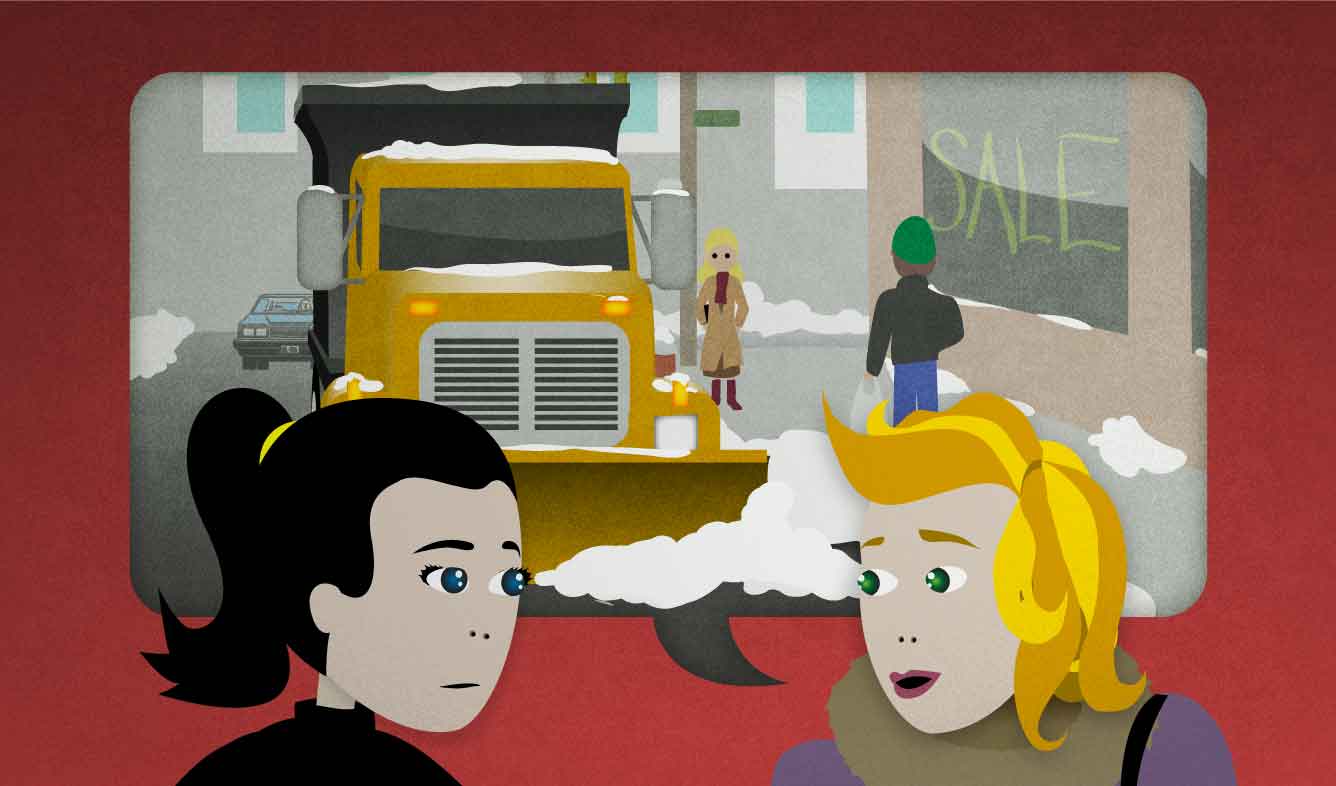“Really? They plowed my street the next morning.”
It snowed a couple of days ago. You're talking with one of the other mothers at your child's daycare about the snow. She says that there's still a lot of snow on her street. The snow has been gone since yesterday where you live, so you say this.
Really? They plowed my street the next morning.
Want Video and Sound? Follow us on YouTube

they
People often use "they" to mean the people who are responsible for something. For example:
They should clean up the sidewalks here.
In this example, you don't know or care who exactly is supposed to do this; you just think that the people or department which takes care of the sidewalks should do it.
"They" can mean:
- the government
- the police
- the people who manage a building
- the people who run large companies
In other cases, when you use the word "they", you have to explain who you're talking about first. Imagine that someone says:
They came to the beach house.
If you didn't know who the speaker was talking about, you would ask:
Who did?
But when "they" means "the people in charge", you don't need to explain who you mean.
plow the street
When it snows, the local government sends trucks out to push the snow off of the major roads. This is called "plowing" the road, and the tool on the front of the trucks that pushes the snow away is called a "plow".
The word "plow" also describes what farmers do to get their fields ready to plant crops in. In old times, farmers used to use a horse, donkey, or cow to pull the plow around their fields. These days, a lot of farmers use a tractor instead. But it's still called "plowing" the field.
The object of "plow" can be "the street", or it can be "the snow". When talking about farming, you can "plow the soil" or "plow the field".
Really?
You can ask "Really?" when you're surprised by what someone says.
A: I was born in Brazil.
B: Really? I thought you were from the U.S.
